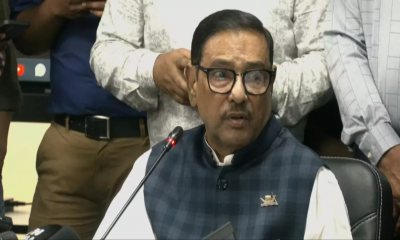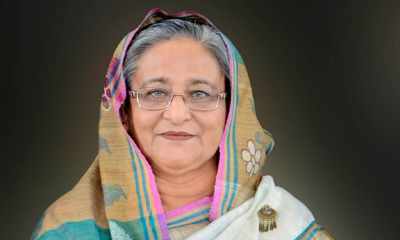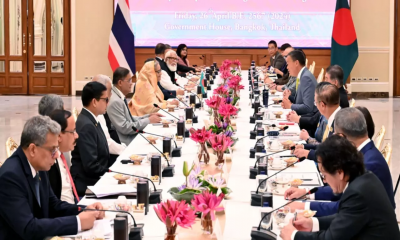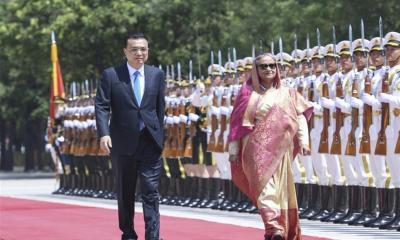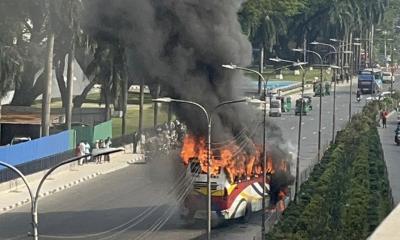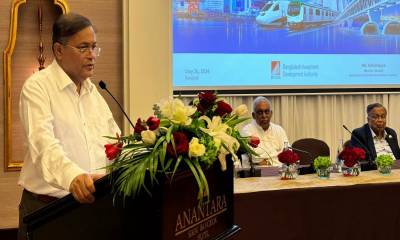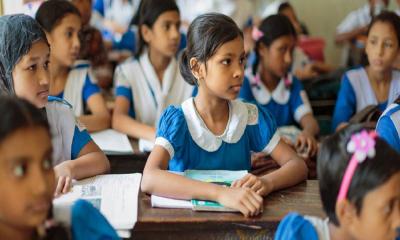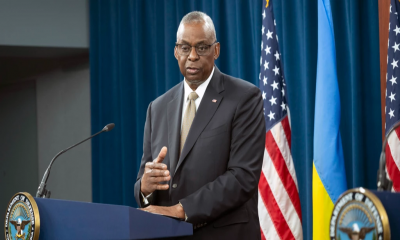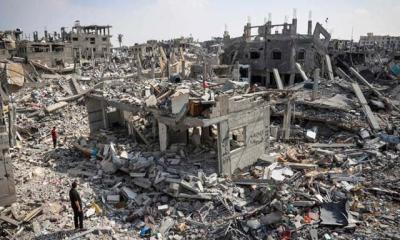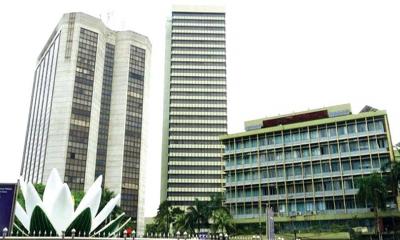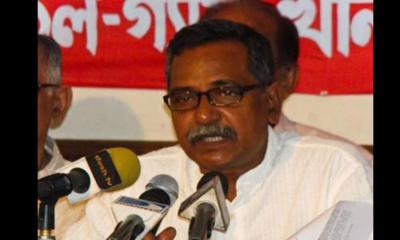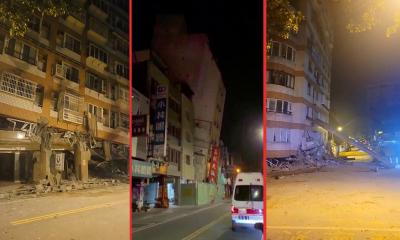Prime Minister Sheikh Hasina today said she feared that frequent climate-induced disasters may disrupt Bangladesh's smooth transition from LDC to a developing country.
"Bangladesh has been recommended for graduation from the LDC by 2026. However, the frequent climate-induced disasters may disrupt our smooth transition. Climate adaptation and disaster risk reduction are, therefore, policy priorities of my government," she said.
The prime minister expressed her apprehension in her pre-recorded video speech that was played in the 79th Annual Session of the Economic and Social Commission for Asia and the Pacific (UNESCAP) on "Accelerating Climate Action in Asia and the Pacific for Sustainable Development" held in Bangkok, Thailand.
She said Bangladesh has been hosting 1.2 million forcibly displaced Myanmar nationals.
"Their overdue presence not only poses a serious security threat but also triggers a severe environmental degradation," she said.
She reiterated her call to take concerted efforts to send them back to their homes in Myanmar.
Hasina put forward four proposals for UNESCAP for the betterment of the world to face the climate change.
The proposals are:
-Climate-vulnerable developing countries, especially in Asia and the Pacific, require adequate finances to implement their NAP as well as to achieve NDC targets.
-International Support Measures of knowledge sharing, technology transfer and innovation-driven trade and investment are to be placed for transition towards climate resilience growth for the graduating countries.
-Trade facilitation measures, digital trade and IT-enabled services should be available in the developing countries to deal with the Fourth Industrial Revolution and mitigate the challenges of climate change.
-Sub-regional cooperation is to be strengthened, especially accelerating the current partnership and developing new partnerships, for promoting the climate actions for sustainable development in Asia and the Pacific.
The prime minister said climate change is the real challenge of this time. The Asia and Pacific region, home to 60 percent of the world's population, is highly vulnerable to climate change.
She said that this region is facing natural calamities like floods, cyclones, heat waves and droughts in an increased rate due to the impacts of climate change affecting lives and livelihoods.
Hasina mentioned that Bangladesh is one of the most climate-vulnerable countries in the world although its contribution to global emission is very negligible.
"Our development programmes, therefore, focus on addressing climate-resilient development efforts," she told the conference.
She said that her government has established 'Bangladesh Climate Change Trust Fund in 2009' to help vulnerable communities. About 851 projects costing around half a billion US dollars have so far been executed under the fund.
In October 2022, she said, Bangladesh has submitted the National Adaptation Plan-NAP to UNFCCC. It has identified 113 interventions across eight priority areas with a costing outlay of around 230 billion US dollar up to 2050.
"Bangladesh has also submitted an ambitious and updated Nationally Determined Contributions-NDC to the UNFCCC in 2021."
She mentioned that the government has adopted the 'Bangladesh Delta Plan 2100', a 100-year strategic plan, for achieving a safe, climate-resilient prosperous delta.
She said that Bangladesh is also implementing the 'Mujib Climate Prosperity Plan spanning from 2022 to 2041 with the vision of setting Bangladesh's development trajectory from vulnerability to resilience.
"Let us join our hands together to consolidate our partnership to fight against the perilous threats of Climate Change and make the world a safer and better place for our future generation," she said.





